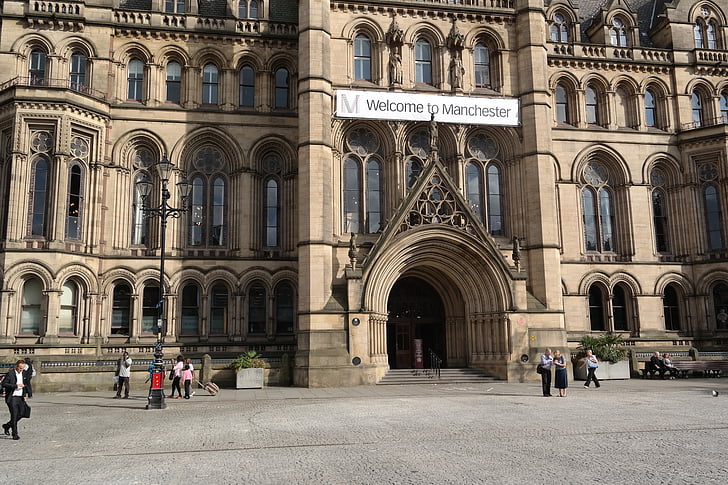For international students, accommodation is just as important as studying. Half of your study time is spent at school or out and about; the other half is spent in a tiny rented room.
A small room is the epitome of your study abroad life and the most nostalgic memories after graduation. So, how do you find the right house in Melbourne? Today, I will talk about renting a room for you.
The First Thing to Consider Before Renting
The price: Generally speaking, a house with a good location and new facilities is definitely not low. A single room is also more expensive than a shared room. Therefore, students may want to look at how much they budget for each month regarding accommodation and then choose a relatively cost-effective residence.
The location: you can choose a house close to the school. Of course, Melbourne City has a sound transport system. And you can find routes and modes of transport to the campus on any of the main roads in the town.

The environment: If you share a flat with a Chinese family and your flatmate is like-minded, you can take care of each other in your life. If you live with a local family or foreign students, you can integrate into local life much faster. And your English will improve by leaps and bounds.

Where Will I Live? On-campus or Off-campus?

Living on campus is highly convenient for students. The academic buildings, gymnasium and student centre are just a short walk away. Monash University has a good selection of on-campus flats. However, even though the on-campus flats are great, only a few rooms are available. So, renting an off-campus apartment is probably the ultimate choice for most international students. For this reason, Monash University’s official website provides a guide to housing around the campuses.

Students can find their campus on the following link page. Click and check the campus surroundings and nearby regular housing agency contact information.
Link Here▼
https://en.uhomes.com/
 Renting an apartment is the first step to independent living overseas. And it’s not a complete study abroad career without experiencing it. Every step of the way, from finding an apartment, viewing it, signing the contract, and moving in, we must be independent and careful. Suppose this is your first time renting an apartment overseas. Then, ensure you know the tips I’ve summarised for renting an apartment.
Renting an apartment is the first step to independent living overseas. And it’s not a complete study abroad career without experiencing it. Every step of the way, from finding an apartment, viewing it, signing the contract, and moving in, we must be independent and careful. Suppose this is your first time renting an apartment overseas. Then, ensure you know the tips I’ve summarised for renting an apartment.

What Do I Have to Do after Renting
You must be pleased to find your favourite place in Melbourne finally. But don’t forget that you need to know two more important things: the tenancy agreement and the security deposit.
Rental Agreement
A tenancy agreement is a contract between you and your landlord. This agreement sets out the rent, security deposit, and lease term. And the terms of the rules and regulations pertaining to the house. When you want to move out of the rented property, you must notify the landlord or the housing agent in advance according to the terms of the rental agreement.

Accompanying the rental agreement is a Condition Report, which you must also sign. This report lists any damages or safety hazards to the property. And you will need to speak with your landlord if you have a problem with the property’s condition.
Tips
- Before signing any document, make sure you understand what is stated in the document. Don’t sign any paper that is not written or is blank.
- It is a good idea to keep a copy of all documents you sign—especially a copy of the condition report of the property, in case of disputes.
- If you have any questions or disputes about your agreement, you must seek support and assistance from the university or the relevant authorities.
Consumer Affairs Victoria is the Victorian regulator for all consumer matters. If you have questions about your agreement or rent during your tenancy, you can consult this organisation and seek legal help. See the official website for more information:
Security Deposit
After discussing the rental agreement, the next step is to pay the security deposit (bond), which we usually call a deposit. Generally speaking, the landlord will require the tenant to pay the bond before moving in and provide you with a receipt for the bond payment.

If there is no damage to the property or breach of the tenancy agreement, the security deposit will be fully refunded when you return the tenancy. Suppose the landlord wants to deduct your security deposit. In that case, the landlord must apply to the Residential Tenancies Bond Authority and provide an application form for your signature and a property condition report to record the property’s condition.
Tips
- After paying the rent, please keep the receipt safe and contact the Residential Tenancies Bond Authority if you do not receive the security deposit receipt within 15 days after payment.
- Do not make payments easily to irregular agents or third-party organisations whose source is unclear, and be careful before making payments.
What to Pay Attention to after Moving in
Students who have rented an apartment know that it is essential to honour the spirit of the contract, pay the rent on time, abide by the terms and conditions of the accommodation, take care of the facilities in the apartment, and keep the room clean and tidy.
If the landlord or agent needs to do a routine home inspection, they must give at least 24 hours notice of their visit.

Contact your landlord or agent if any problems with your home need urgent repair, such as damaged electrical equipment, heaters, burst pipes, severe leaks in the roof, leaking gas appliances or faulty toilet systems that cause inconvenience or safety hazards. If the damaged equipment is not in need of urgent repair, you may give written notice to the landlord or agent.
Generally speaking, the landlord needs to start dealing with urgent repairs immediately, while the landlord needs to complete non-urgent repairs within 14 days. If the housing problem is not fixed correctly, you can contact Consumer Affairs Victoria for legal help.
FAQ
Renting in Melbourne requires careful consideration of factors such as location, proximity to public transport, rental prices, and the property’s condition.
Arranging an inspection before finalizing a rental agreement is always recommended. This allows you to assess the property’s condition and any potential issues.
Always check for terms regarding rent increases, maintenance responsibilities, lease duration, and conditions for termination or renewal.
Having a clear understanding of the current rental market, being ready to commit, and demonstrating your reliability as a tenant can help you negotiate a better deal.
The standard lease length in Melbourne is usually 12 months, but it can vary depending on the landlord and the specific agreement.






